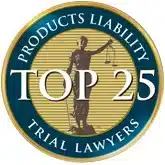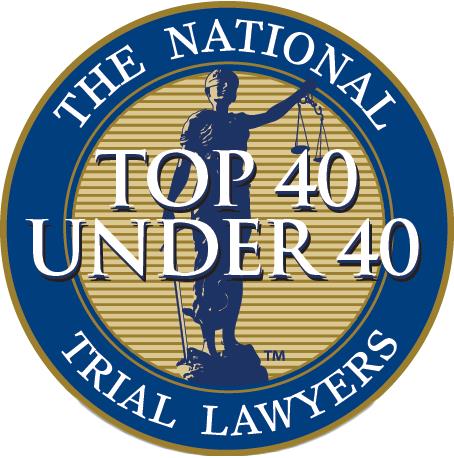As the world moves towards a more sustainable future, electric vehicles (EVs) have become an increasingly popular choice for eco-conscious consumers. However, the rapid growth of the EV market has also brought to light a concerning issue: the prevalence of defective products in these vehicles.
In this article, the legal team at the Wilshire Law Firm will examine the dangers of defective products in affordable electric vehicles such as the Toyota Prius, Ford Mustang Mach-E, and Chevrolet Bolt.
We’ll explore the risks associated with these defects, the common issues, the legal implications, and the steps you can take to protect yourself.
If you or someone you know has been injured by a defective product in an electric vehicle, reach out to a product liability lawyer from Wilshire Law Firm today.
Understanding the Risks Associated with Defective Products

Electric vehicles have revolutionized the automotive industry, offering a cleaner and more sustainable mode of transportation. However, the rush to bring these vehicles to market has led to a concerning trend: an increase in the number of defective products found in EVs.
These defects can range from faulty batteries and malfunctioning charging systems to issues with the vehicle’s electrical components and safety features. The consequences of these defects can be severe, putting drivers, passengers, and the environment at risk.
One of the most significant risks associated with defective products in electric vehicles is the potential for fire or explosion. Faulty batteries or electrical systems can overheat, leading to a catastrophic failure that can result in a devastating fire. These fires can be particularly challenging to extinguish and can pose a significant threat to the safety of those in the vehicle and the surrounding area.
Moreover, defective products in EVs can also compromise the vehicle’s performance and handling, increasing the risk of accidents and collisions. Faulty steering, brakes, or suspension components can make the vehicle difficult to control, putting the driver and others on the road in danger.
Common Types of Defects in Electric Vehicles
As the EV market continues to grow, the Wilshire Law Firm has observed a variety of defective products that have plagued affordable electric vehicles.
Some of the most common issues include:
- Battery Defects: Faulty or malfunctioning batteries can lead to reduced range, premature degradation, and even the risk of fire or explosion.
- Charging System Failures: Defective charging ports, cables, or onboard chargers can prevent the vehicle from properly recharging or even pose a safety hazard.
- Electrical Component Malfunctions: Issues with the vehicle’s electrical systems, such as the motor, inverter, or control modules, can cause the vehicle to lose power or experience unexpected shutdowns.
- Software and Connectivity Problems: Glitches in the vehicle’s software or issues with the connectivity between various systems can lead to a range of problems, from infotainment system failures to unexpected behavior.
- Safety Feature Defects: Defects in the vehicle’s safety features, such as airbags, seatbelts, or collision avoidance systems, can compromise its overall safety.
These defects can compromise the vehicle’s performance and reliability and put the driver, passengers, and others on the road at risk.
The Impact of Defective Products on Consumers and the Environment
The consequences of defective products in electric vehicles extend far beyond the individual consumer. These issues can significantly affect the broader community and the environment as a whole.
From a consumer perspective, defective products in EVs can lead to significant financial and emotional distress. Owners may face costly repairs, extended downtime, and the frustration of dealing with a malfunctioning vehicle. In some cases, these defects can even result in the total loss of the vehicle, leaving the consumer in a difficult position.
Moreover, the environmental impact of defective products in electric vehicles cannot be overlooked. EVs are touted as a more sustainable alternative to traditional gasoline-powered vehicles, but defective components can undermine this advantage.
Faulty batteries or electrical systems can lead to increased energy consumption, reduced efficiency, and even the release of harmful emissions, negating the environmental benefits of electric transportation.
In the long run, widespread issues with defective products in EVs can erode public trust in the technology, slowing the adoption of electric vehicles and hindering the transition to a more sustainable transportation future.
Legal Implications of Defective Products in Electric Vehicles
The legal implications of defective products in electric vehicles can be complex and far-reaching. Consumers affected by these issues may be entitled to compensation or other forms of legal recourse.
Under product liability laws, manufacturers and suppliers of electric vehicles must ensure that their products are safe and free from defects. If a defective product causes harm to the consumer, the manufacturer may be held liable for the resulting damages.
The Wilshire Law Firm has extensive experience in handling product liability cases, including those related to defective products in electric vehicles. Our team of skilled attorneys can help you navigate the legal landscape, understand your rights, and pursue the compensation you deserve.
The Role of Wilshire Law Firm in Handling Defective Product Cases
At the Wilshire Law Firm, we have a deep understanding of the unique challenges and complexities involved in defective product cases, particularly those related to electric vehicles. Our team of experienced attorneys has a proven track record of success in advocating for the rights of consumers affected by these issues.
When you work with the Wilshire Law Firm, you can expect a comprehensive and personalized approach to your case. We will thoroughly investigate the defect, gather evidence, and build a strong legal strategy to ensure that you receive the compensation and justice you deserve.
Our attorneys are well-versed in the latest developments in product liability law and have a deep understanding of the electric vehicle industry. We will work tirelessly to hold manufacturers and suppliers accountable for their actions and ensure that they take the necessary steps to address the issue and prevent future occurrences.
The Consequences of Not Hiring a Product Liability Lawyer
Navigating the legal complexities of a defective product case can be a daunting task, especially for individuals who are not familiar with the legal system.
Without the guidance and representation of an experienced product liability lawyer, you may face significant challenges:
- Difficulty Establishing Liability: Proving that a defective product caused your injuries or damages can be challenging without the proper legal tools and resources.
- Inadequate Compensation: Insurance companies and manufacturers may try to minimize the value of your claim, leaving you with insufficient compensation to cover your losses.
- Lack of Negotiation Power: Without a skilled attorney, you may be at a disadvantage when negotiating with large corporations and their legal teams.
- Missed Deadlines and Procedural Errors: Failing to adhere to strict legal deadlines or follow proper procedures can jeopardize your case.
- Emotional Stress and Uncertainty: Navigating the legal system on your own can be overwhelming and stressful, adding to the burden of dealing with the consequences of a defective product.
By working with the Wilshire Law Firm, you can ensure that your rights are protected and that you receive the full compensation you are entitled to.
What to Expect from the Defense
When it comes to defective product cases, consumers can expect a robust defense from the manufacturers and suppliers of the products in question. These companies often have teams of skilled attorneys and substantial resources at their disposal, making it crucial for consumers to have equally capable legal representation.
The defense strategy in a defective product case may include:
- Challenging Liability: Manufacturers may attempt to argue that the defect was not the cause of the consumer’s injuries or damages, or that the consumer was somehow responsible for the issue.
- Disputing the Extent of Damages: The defense may try to minimize the value of the consumer’s claim by disputing the severity of their injuries or the extent of their financial losses.
- Delaying Tactics: Manufacturers may use various legal maneuvers to prolong the case, hoping to exhaust the consumer’s resources and patience.
- Confidentiality Agreements: In some cases, manufacturers may offer a settlement in exchange for a confidentiality agreement, preventing the consumer from sharing their story and holding the company accountable.
To overcome these tactics, it is essential to have a skilled and experienced product liability attorney on your side. The Wilshire Law Firm has the knowledge, resources, and tenacity to stand up to the defense and ensure that your rights are protected.
What are the Core Fundamentals of a Product Liability Claim?
When it comes to defective product cases, several core fundamentals must be established to build a successful claim:
- Defective Design or Manufacture: You must demonstrate that the product was defective either in its design or during the manufacturing process.
- Causation: You must show that the defect was the direct cause of your injuries or damages.
- Damages: You must be able to quantify the financial and/or physical damages you have suffered due to the defective product.
- Duty of Care: You must be able to prove that the manufacturer or supplier had a duty of care to ensure the safety of the product.
- Breach of Duty: You must demonstrate that the manufacturer or supplier breached their duty of care by allowing the defective product to reach the market.
The Wilshire Law Firm’s team of experienced product liability attorneys can help you navigate these complex legal requirements and build a strong case on your behalf.
The Tricks and Deceptions of EV Manufacturers
Unfortunately, some electric vehicle manufacturers have been known to engage in deceptive practices when addressing defective products. These tactics can include:
- Downplaying the Severity of Defects: Manufacturers may minimize the risks and consequences of defective products, claiming that the issues are isolated or not as serious as they appear.
- Delaying Recalls and Repairs: Companies may be slow to initiate recalls or provide timely repairs, putting consumers at risk.
- Shifting Blame to Consumers: Manufacturers may try to argue that the consumer was responsible for the defect or misused the product, absolving the company of liability.
- Offering Inadequate Compensation: When consumers seek compensation, the manufacturer may offer settlements that do not fully cover the damages.
- Exploiting Legal Loopholes: Manufacturers may attempt to use complex legal maneuvers to avoid responsibility for their defective products.
By working with the Wilshire Law Firm, you can be assured that these tactics will not deter us. We will thoroughly investigate the facts, gather evidence, and fight tirelessly to ensure that you receive the justice and compensation you deserve.
Steps to Take if you Suspect a Defect in your Electric Vehicle

If you believe your electric vehicle has a defective product, it’s important to take immediate action to protect your rights and safety. Here are the steps you should take:
- Document the Issue: Carefully document the problem, including any warning signs, symptoms, or incidents that have occurred. Take photos or videos of the defect, if possible.
- Contact the Manufacturer: Contact the manufacturer and report the issue, following their prescribed process for handling defective products.
- Seek Professional Inspection: Have your vehicle inspected by a qualified mechanic or technician who can provide a detailed assessment of the problem.
- Preserve Evidence: Avoid attempting any repairs or modifications to the vehicle, as this could potentially compromise the evidence.
- Consult a Product Liability Lawyer: Contact the Wilshire Law Firm to discuss your case and explore your legal options.
By taking these steps, you can strengthen your case and increase the likelihood of receiving the compensation and resolution you deserve.
Safety Measures and Regulations for Electric Vehicle Manufacturers
To address the growing concerns around defective products in electric vehicles, lawmakers and regulatory bodies have implemented a range of safety measures and regulations. These include:
- Mandatory Recalls: Manufacturers are required to initiate recalls for any vehicles or components that pose a safety risk to consumers.
- Safety Standards and Certifications: Electric vehicles must meet strict safety standards and undergo rigorous testing and certification before being approved for sale.
- Increased Oversight: Regulatory agencies, such as the National Highway Traffic Safety Administration (NHTSA), are closely monitoring the EV industry and investigating reports of defective products.
- Transparency Requirements: Manufacturers are required to be more transparent about any known issues or defects and the steps they are taking to address them.
- Stricter Penalties: Companies that fail to comply with safety regulations or attempt to conceal defective products can face significant fines and legal consequences.
While these measures are a step in the right direction, consumers must remain vigilant and seek the guidance of experienced product liability lawyers, such as those at the Wilshire Law Firm, to ensure their rights are protected.
Get a Free Case Review Today
If you or a loved one has been affected by a defective product in an electric vehicle, don’t hesitate to contact the Wilshire Law Firm for a free case evaluation.
Our team of experienced personal injury attorneys is dedicated to holding manufacturers accountable and securing the compensation you deserve.










